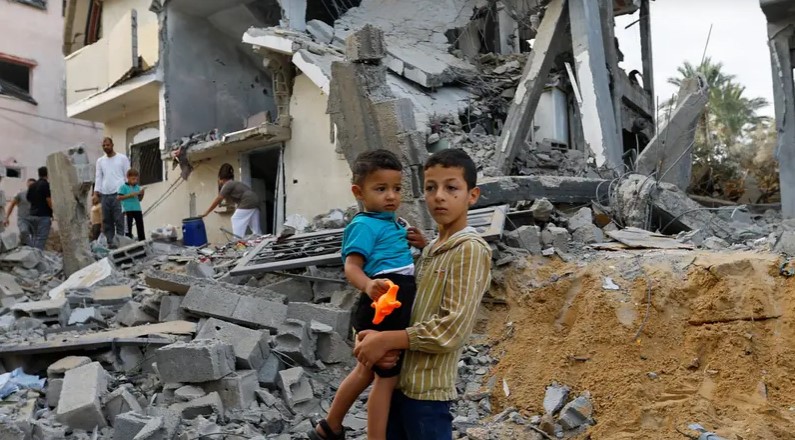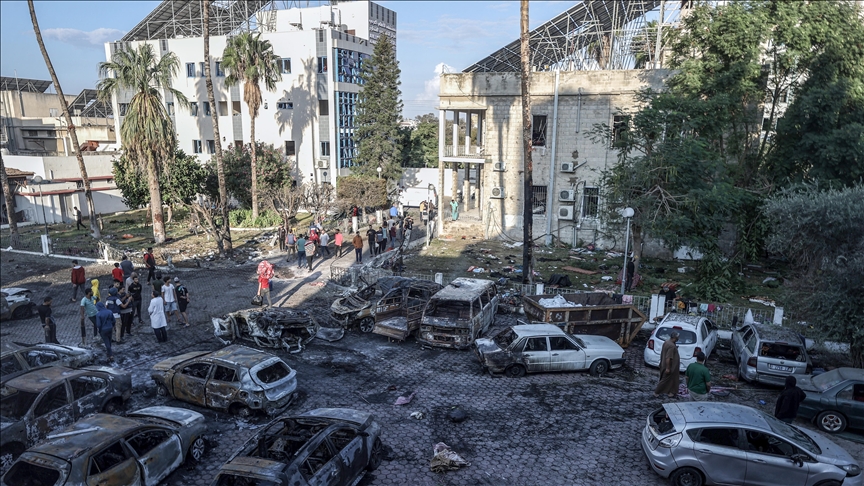Introduction
The Gaza bombing is a deeply contentious and complex issue that has long plagued the Middle East. This article aims to provide a comprehensive overview, shedding light on the historical background, current dynamics, and potential paths toward peace. From understanding the root causes to exploring the humanitarian consequences, we delve into every aspect of this conflict.
Overview of the Gaza Bombing
In recent years, the Gaza Strip has been the site of intense violence, with frequent bombings and clashes between Israeli forces and Palestinian militants. This section provides an overview of the key events leading up to the current situation, including the blockade of Gaza, rocket attacks, and military operations.
Historical Context
To understand the Gaza bombing fully, it’s essential to delve into the historical context. The roots of the conflict trace back decades, with deep-seated tensions over land, identity, and sovereignty. From the establishment of Israel in 1948 to the Six-Day War in 1967, each event has contributed to the ongoing strife in the region.
Recent Escalations
In recent years, tensions in Gaza have escalated, leading to a series of deadly confrontations. Rocket attacks by Palestinian militants, retaliatory airstrikes by Israel, and clashes along the border have become disturbingly common. Understanding these recent escalations is crucial to grasping the current situation.
Humanitarian Crisis
Beyond the political and military dimensions, the Gaza bombing has had devastating humanitarian consequences. The blockade imposed by Israel has led to severe shortages of essential goods, including food, medicine, and electricity. Moreover, the destruction caused by airstrikes has displaced thousands of Palestinians, exacerbating an already dire situation.
International Response
The international community has been deeply involved in efforts to address the Gaza crisis, with various diplomatic initiatives and aid programs aimed at alleviating the suffering of civilians. However, finding a lasting solution remains elusive, as deep-rooted political divisions and conflicting interests continue to hinder progress.
Analyzing the Impact
The Gaza bombing has far-reaching implications, not only for the people directly affected but also for regional stability and global security. This section examines the multifaceted impact of the conflict, from its humanitarian toll to its broader geopolitical ramifications.
Human Cost
At the heart of the Gaza bombing are the human lives devastated by violence and displacement. Civilians, including women and children, bear the brunt of the conflict, facing unimaginable hardships and trauma. The toll on mental health and well-being cannot be overstated, highlighting the urgent need for humanitarian assistance and support.
Geopolitical Dynamics
The Gaza bombing is not just a local issue but one with significant geopolitical implications. The conflict has deepened divisions within the region, fueling tensions between Israel and its neighbors, as well as shaping broader alliances and power dynamics. Understanding these geopolitical complexities is essential for formulating effective strategies for peace and stability.
Global Security
The instability resulting from the Gaza bombing poses a threat to global security, with the potential to escalate into broader regional conflicts. The proliferation of weapons, the rise of extremist groups, and the erosion of trust between nations all contribute to a volatile landscape fraught with risk. Addressing the root causes of the conflict is vital for safeguarding peace and security worldwide.
Exploring Solutions
While the Gaza bombing may seem like an intractable problem, there are avenues for potential resolution. This section explores various approaches and initiatives aimed at addressing the underlying grievances and building a sustainable path towards peace.
Diplomatic Efforts
Diplomacy plays a crucial role in resolving the Gaza crisis, with international mediators working tirelessly to broker ceasefires and negotiate peace agreements. From the United Nations to regional powers like Egypt and Qatar, diplomatic channels offer hope for de-escalation and dialogue.
Conflict Resolution
At the heart of any solution to the Gaza bombing lies the need for genuine reconciliation and conflict resolution. This entails addressing the root causes of the conflict, including territorial disputes, economic disparities, and historical grievances. By fostering dialogue and promoting mutual understanding, lasting peace can be achieved.
Humanitarian Aid
Amidst the turmoil of conflict, humanitarian aid provides a lifeline for those most vulnerable in Gaza. International organizations and non-governmental agencies play a vital role in delivering essential services, including food, shelter, and medical care. However, sustained support is needed to address the underlying humanitarian crisis and rebuild shattered communities.
Conclusion
The Gaza bombing is a tragic chapter in the ongoing saga of the Israeli-Palestinian conflict. However, amidst the devastation and despair, there remains hope for a brighter future. By understanding the root causes, amplifying voices of peace, and supporting efforts for reconciliation, we can work towards a world where all people can live in dignity and security.











One thought on “Gaza Bombing: Understanding the Conflict”